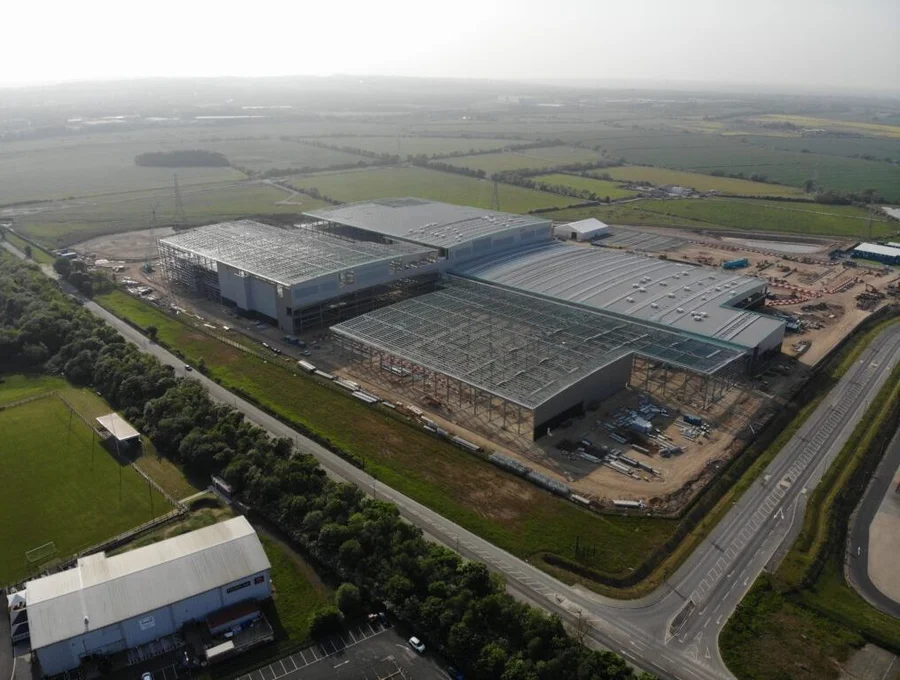The UK government has confirmed a substantial £1bn (approximately US$1.3bn) funding arrangement to establish an AESC battery gigafactory in Sunderland, England. This initiative aims to significantly impact the electric vehicle (EV) landscape with its robust annual capacity of 15.8 GWh.
The financial strategy involves crucial backing from the National Wealth Fund and UK Export Finance, paving the way for £680m (around US$898m) in bank financing. Prominent institutions such as HSBC, Standard Chartered and the SMBC Group are central to this funding effort.
This gigafactory forms part of the United Kingdom’s broader strategic initiative to reinforce its automotive sector’s supply chain. The government is also investing £150m (US$198m) through the Automotive Transformation Fund to accelerate the transition to EVs.
This commitment to strengthening the EV supply chain follows a trade deal agreement between the US and UK that has notably reduced vehicle tariffs, making the market more competitive and accessible.
Shoichi Matsumoto, CEO of AESC, emphasised the facility’s importance: “This investment marks a significant step in AESC’s ongoing efforts to support the United Kingdom’s path towards decarbonisation and the expansion of its EV market. Through close collaboration with strategic partners, we strive to accelerate this transition while creating high-quality local jobs and building a resilient, sustainable supply chain.”
Explore AESC’s role in EV production
AESC, initiated as a collaboration between Nissan and TOKIN Corporation in 2007, is a prominent name in lithium-ion battery production. After Chinese clean energy giant Envision Energy partially acquired Nissan’s stake in 2019, AESC has consolidated its role in advancing EV technologies.
With technology empowering over a million vehicles, AESC has facilitated more than 15GWh of battery energy system capacity across 60 countries. Its first Sunderland plant, operational since 2012, marked Europe’s initial entry into battery manufacturing for EVs.
Significantly, this facility boasts an annual production capacity of 1.8 GWh, having delivered enough battery cells to power around 250,000 EVs over more than a decade.
A closer look at Sunderland gigafactory
AESC’s second Sunderland gigafactory, announced in 2021, represents an evolution of this legacy. Upon completion, it promises to enhance the United Kingdom’s domestic battery production by offering an annual capacity of 15.8 GWh and creating over 1,000 jobs.
Pursuing a sustainable supply chain remains a priority, with the gigafactory powered entirely by carbon-neutral energy. Initiated in December 2022, the construction phase exemplifies traditional Japanese craftsmanship with a ceremonious “first pillar” ceremony.
The project stands out with its impressive scale, occupying a footprint the size of 23 football fields and incorporating 14,000 kilometres of mains cables.
Jonathan Reynolds, UK Business and Trade Secretary, remarked on the strategic importance of the investment: “We’re backing our world-class car industry, and this investment is yet another vote of confidence in the North East’s thriving auto manufacturing hub which will secure a thousand well-paid jobs and boost prosperity across the region.”
Funding mechanics and economic impact
The detils behind the financial backing of this massive project includes £680m (around US$898m) pledged by the National Wealth Fund and UK Export Finance, complemented by private sector contributions totalling £320m (approximately US$422m).
Ian Stuart, CEO at HSBC UK, expressed pride in the bank’s involvement: “We’re extremely proud to have played a leading role in this complex and significant deal, including as underwriter, structuring bank and joint ECA co-ordinator. Once operational, the gigafactory will unlock a substantial increase in the United Kingdom’s EV battery production, supporting the electrification of vehicles and the wider green transition.”
The gigafactory aims to not only enhance EV battery production but also reinforce the supply chain, ensuring the United Kingdom remains at the forefront of the automotive sector’s transition to electrification.
John Flint, National Wealth Fund CEO, commented on the comprehensive benefits: “AESC’s gigafactory will not only help to re-equip our car industry for net zero it will also support jobs, growth and prosperity in the Northeast.”
Natalie Blyth of HSBC noted the broader implications: “Fantastic to see HSBC play a lead role in the financing of AESC’s second gigafactory in Sunderland, a landmark transaction supporting the United Kingdom’s electrification of vehicles.”


